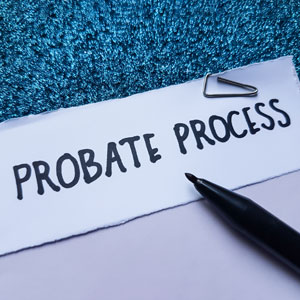
In this article, you will discover:
The personal representative is a fiduciary role, meaning they have a responsibility to somebody besides themselves. In this case, the personal representative has a fiduciary responsibility to the beneficiaries of the estate plan.
The personal representative will petition the court, if needed, to administrate the estate of the deceased or “decedent.” They will also gather the assets of the deceased, keeping track of all of them, whether they’re bank accounts, personal property or real estate. Even if assets are outside of Minnesota, they can be part of a Minnesota probate.
Once the assets are gathered, the personal representative pays off any debts. Debts of the last illness and administration of the estate are paid first before any other valid debts. Once the debts are paid, funeral expenses and any other expenses for administering the estate are paid. Finally, the personal representative distributes the estate to the beneficiaries.
When you’re going through the courts, it’s essential to have all of the documents in place to protect the personal representative. Those documents are distributed to the creditors, first of all, and then to the beneficiaries.
There is some exposure to liability for the personal representative, so it’s helpful to have an attorney guide you through that process so everything is done correctly and you minimize that exposure to liability.
The documents the personal representative would provide include a will or a trust, a death certificate, and any other documents that would demonstrate the extent of the deceased’s estate so that an attorney can help administer that estate.
The personal representative’s role is to ensure the decedent’s assets are handled in a fiscally responsible way.
As a fiduciary, the personal representative has a responsibility to the beneficiaries of the estate. Often, the oldest sibling is assigned or nominated as the personal representative for the estate. Their responsibility is to ensure the beneficiaries of the estate are taken care of. The personal representative also has a duty to the creditors, even though we don’t always think about it.
Personal representatives can be held personally liable for mistakes in probate, but those mistakes need to be significant. Somebody who mistakes the timing of a market decision will not be held liable. However, somebody who decides to invest in a stock that clearly has no value because they have a personal interest could be held liable.
It has to be a matter of gross negligence or malfeasance. The personal representative would have to know what they were doing, know it was a bad idea and decide to do it anyway. That’s a mistake for which they would be liable.
Probate can be complicated, even though the beginning is typically pretty straightforward. Somebody passed away. You have the death certificate and a will. You know what the decedent wanted. However, when you look at the estate, you realize the extent of the debt compared to the assets.
Maybe you can’t cover all of the debt. How do you handle that? Perhaps you’re not able to give all of the gifts the testator intended to provide. Maybe some assets have to be divided in different ways, or there are minors involved. How do you handle all of those things? How do you pay off all the claims, and what assets can we pay those claims from? What assets don’t we need to pay those assets from? What assets are protected from creditors?
All of those questions are complicated. Sometimes, even if you’re thinking it’s going to be straightforward, it isn’t necessarily. It’s hard to know what you’re getting into. Having an attorney to walk you through the process can be helpful.
Minnesota handles contested wills as a civil lawsuit. When I begin probate, I am usually asking the court to assign you as the personal representative of your loved one’s estate. However, that is something that can be contested.
Consider the scenario where the oldest sibling is nominated as the personal representative. Maybe there’s somebody else who wants to be the personal representative. They can bring an objection to that appointment.
The court will look at that and, depending on what the objection is or the other person’s standing, the court will decide who should be the personal representative for the estate. Sometimes, that representative will be an outsider and a third party.
The nominated representative should hire an attorney but also should consider whether or not it makes sense to fight the objection. It could make more sense to hire a third party, a professional, to handle the estate, depending on the extent of the assets. When there are minors involved in a probate estate, it can be even more complex, and you should hire an attorney to walk you through that process.
Still Have Questions? Ready To Get Started?
For more information on understanding Minnesota’s probate process, an initial consultation is your next best step. Get the information and legal answers you are seeking by calling (763) 284-5552 today.
Copyright©2025, Gomez Law PLLC. All Rights Reserved.